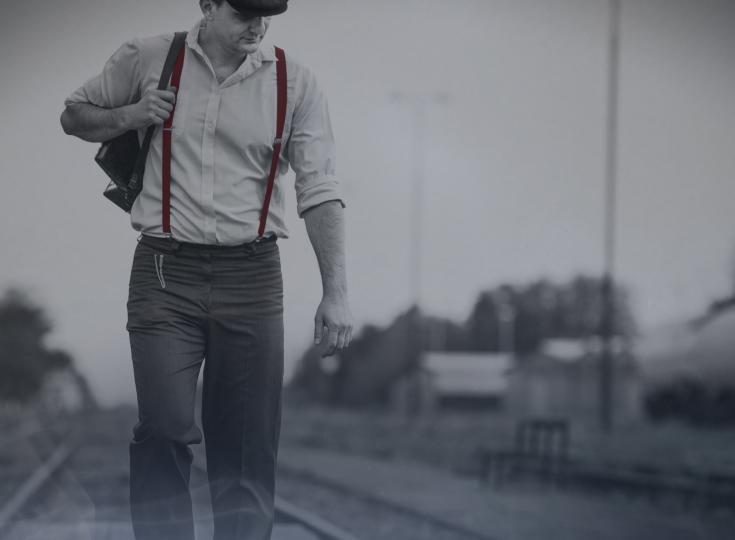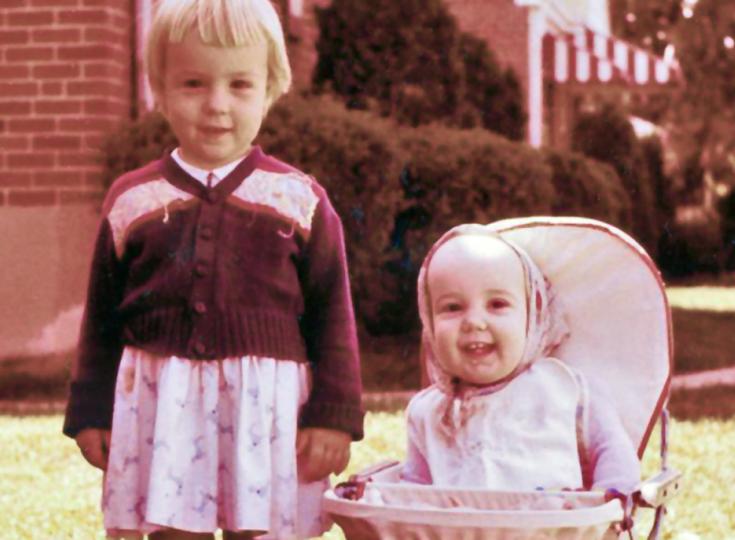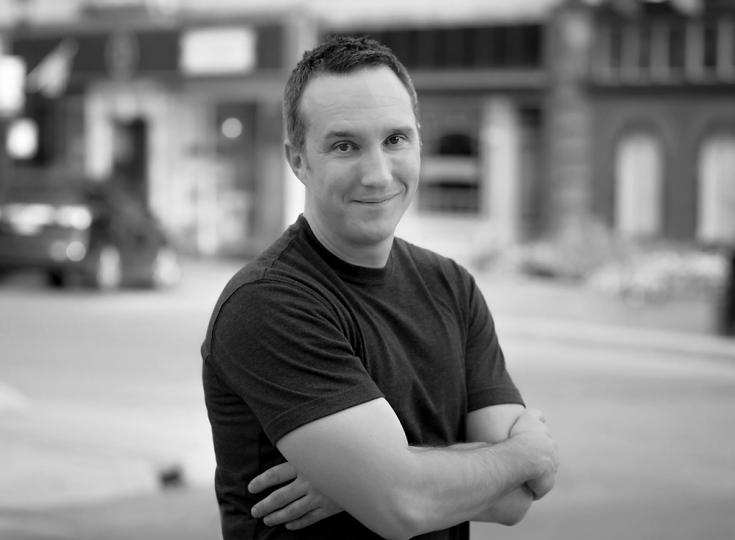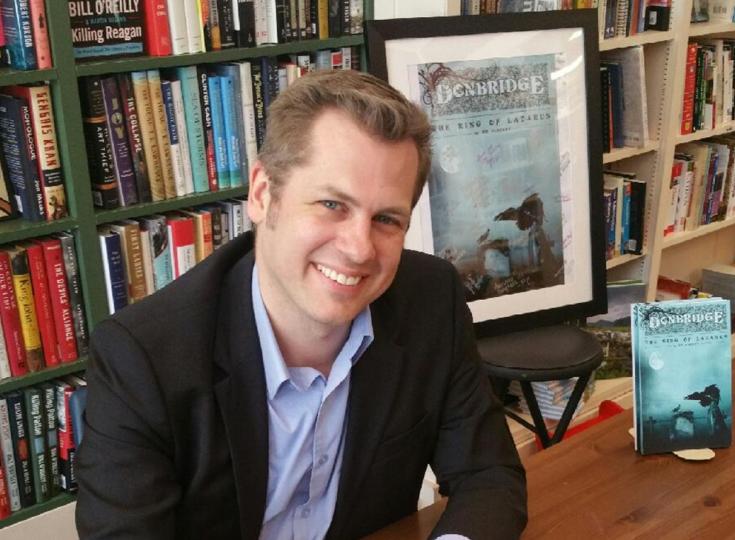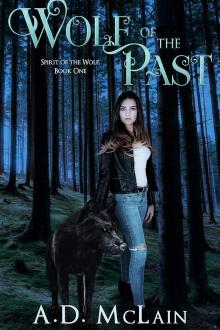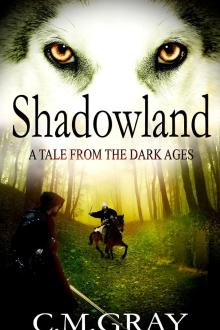Gilbert Reid - A Wild Ride Into Adventure, Fantasy, and Chills
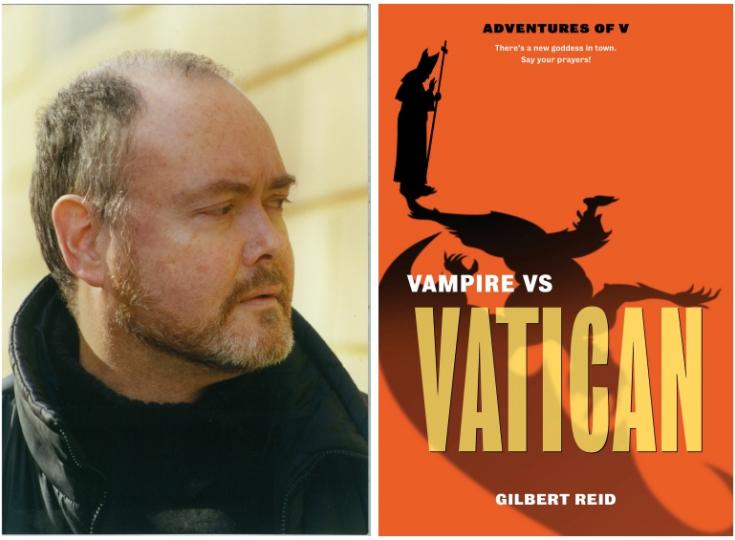
Gilbert Reid has written and broadcast widely on many subjects - including warfare, weapons technology, religion and mythology, eroticism and sexuality, and the life and death of nations. Creator of V and the Adventures of V, Gilbert is also the author - with the late Jacqueline Park - of Son of Two Fathers, a swashbuckling romantic historical novel set in the Italian Renaissance, and of two acclaimed short story collections: So This is Love: Lollipop and Other stories, and Lava and Other Stories, and, under the pen name Gwendoline Clermont, of a sizzling but sophisticated erotic trilogy, The Gwendoline Trilogy. For thirty years, Gilbert lived, studied, and worked in Europe, as a diplomat, economist, university lecturer, adventure travel guide, script doctor, and cultural promotor. For almost a decade, Reid worked in public relations in Italy with numerous cultural and film festivals - in Taormina, Sorrento-Naples, Spoleto, Venice, and many others, as well as doing working with some of the great names of Italian cinema, such as Sergio Leone, inventor of the “Spaghetti Western” and the fabulous actor, Marcello Mastroianni. He has written for The Times Literary Supplement, The Globe and Mail, Flare Magazine, and many other prestigious publications. His various television series, notably For King and Empire and For King and Country, have been seen by up to ten million people, and his two radio series, Gilbert Reid's France, and Gilbert Reid's Italy, for the Canadian Broadcasting Corporation’s flagship show, IDEAS, gathered among the highest IDEAS ratings ever. As our Author of the Day, he tells us all about his book, Vampire Vs Vatican.
Please give us a short introduction to what Vampire Vs Vatican is about.
Vampire Vs Vatican is a fast-moving adventure story about a young woman, born in Phoenician North Africa about 600 years before Christ, who, when she is 19 years old, discovers she is a sort of demon, with wonderful martial powers, but also that, tragically, she is a vampire - she must live off human blood. She also discovers that she has a mission - her mission is to protect the human race and the planet Earth. Her new name is "V." She discovers that she has three forms - her usual human, extremely beautiful form, a standard-issue vampire form, and an exquisite, but deadly humanoid reptilian form, even more powerful than her usual human persona. V discovers too, that she is the custodian, the guardian, of a very powerful weapon - a weapon that can destroy the Earth. And, in the near future, sometime in the late 2020s, an insane religious leader, a Cardinal of the Roman Catholic Church, who is the head of a secret satanic sect hidden in the Vatican, decides to destroy the Earth in the name of Satan. V must stop him. This is the story of a young woman as a hero or heroine. This is the story of a pagan goddess, in a sense, who has come from Ancient Times, to defend us, on planet earth, from fanatical madness. This is a story of fanaticism pitched against reason. It is also a story about politics and about links between certain powers in the Vatican - the Vatican Bank in particular - and organized crime, in the form, in particular, of the Sicilian Mafia. I lived in Rome for 18 years and in Sicily for 6 years and I followed these affairs quite closely.
What inspired you to write about a 2600-year-old half-alien vampire?
Vampires were fascinating and fashionable. V is not exactly a vampire - she is not dead, she is not one of the living dead, she is quite alive. I have always been fascinated by the vampire myth - as many of us are - I have always been fascinated by the ancient pagan religions - in some ways, then, the gods and goddesses were much closer to humanity than the monotheistic transcendent God we have today. He, and He is almost always a "he," resides in another place. Then, at the time, I had just gotten separated from my wife; she had been bugging me to write a "popular" novel and she suggested I write something about the Vatican, since I knew the Vatican so well. But I said, "Dan Brown has already done that." Then, I thought, "Well, Vampire - Vatican". The alliteration, the echoing of the two Vs sounds nice, so "Vampire Vs Vatican" was born. And as soon as I wrote the first lines about "V" she had me hooked. She is based on some very strong women I have known. Also, I think it is about time to put the feminine side of humanity back into divinity, even if in semi-demonic form. V's friend, Father Michael Patrick O'Bryan insists she is a demon, and from time to time he tries to cast her out. But then he falls under her spell. She is, when she wants to be, irresistibly charming.
Tell us more about V, what makes her so special?
Well, V is a superheroine, and she can, as they say, "kick-ass." But she is also ironic, funny, very sexy, full of unbridled and contradictory desires, extremely articulate, and, having lived for thousands of years, she knows lots of stuff, she is, in a way, wise. At the same time, if she drinks too much blood she can get very feisty, and do things she ought not to do, and this can get her into deep trouble and even mortal danger. She has to watch out for hubris because hubris brings nemesis - big, big trouble. She is extra-human as well as extra-terrestrial. One of the ways, she can get into trouble is by biting her lover - if she gets over-excited! - and if she bites her lover she has to destroy him or her because she has sworn to never create any other being like herself. We see this play out in volume two - Vampire Clone.
Why did you decide to include a cult in your story?
I am Canadian - and I was educated partly in England (London School of Economics, Cambridge University, Birbeck College) - and I worked, for a number of years, as an economist and diplomat - so I believe very much in working things out, in compromise, in being reasonable. I think that religion is fundamental to human societies - I myself am not, in the traditional sense, religious, though I was raised, in a vague sort of way, in the Anglican or Episcopal tradition. I find the rise of fundamentalism in religions, and the rise of cults, extremely dangerous, since cults stand for the total rejection of moderation, humility, compromise, and reason, the sort of reason that we use in modern science when we test things to see if they work, when we are ready to change our opinions if the evidence indicates that we are wrong, the sort of reason that tells us we must be civil and polite to people who don't share our opinions. Without that sort of humility and reasonableness, democracy and civil society cannot last long. Canada is a country that never had a revolution or civil war, that has grown with an internal balance of power, or sets of balances of power, between French and English, between East and West, between - even - First Nations and Newcomers; and so compromise has been central to the construction of Canada and to its survival. Polarization of the kind we are now seeing in the United States would absolutely rip Canada apart. So I am fascinated by cults since they are a form of extremism, like the Taliban or ISIS (The Islamic State of Iraq and the Levant). Also - I almost forgot - I was very close to the formation of a cult when I was a teenager. I knew the leader of the cult well. He converted my best friends to his beliefs. They then saw me as evil since I was very skeptical - to say the least - about the cult, though I liked the leader as a person. I also had read some books about fanaticism, such as Eric Hoffer's The True Believer (1951). Fanaticism takes many forms, religious and secular, and somebody of my generation and background was very aware of Fascism, Nazism, and Communism. V is a crusader against fanaticism, in all its guises. Cults are one contemporary form of fanaticism. And fanaticism is extremely dangerous.
Besides writing, what other secret skills do you have?
I'm not sure I have any extra secret skills. I am good at explaining complex stuff, I am told, stuff I have managed to explain to myself. I speak a couple of languages - French and Italian and very rough German and basic elements of Russian and Spanish. I go for long walks. I once led some adventure travel tours to what was called the Far East, Malaysia, Indonesia, Singapore, and I explored India, way back, just a bit on the west coast, hitchhiking and on foot and on an overcrowded coastal steamer. But lots of people do those sorts of things.
Which of your characters was the most challenging to create?
Evil characters are often very difficult. How do you get inside absolute evil? I think that sometimes even Stephen King, who is a master at everything, has this difficulty, for instance in The Stand. Cardinal Ambrosiano I think was the most difficult character. I was puzzling. Then I remembered - it was like a vision - seeing a Cardinal at a cocktail party at the Canadian Embassy to the Vatican, many, many years ago. This Cardinal was very old, his skin was like yellow wax, he was extremely handsome, sharp, diabolic features, and very crafty, intelligent, shifty eyes. He looked, though he undoubtedly was a saintly man, as if he were the devil incarnate, evil itself. So from then on, I had a sense of the character. I still had to work out his "theology" - his idea of what he was doing and why. Father O'Bryan theorizes that Ambrosiano aspired to perfection and that if he could not be perfect in Good, he would be perfect in Evil. That is perhaps right, I'm not sure.
Why did you title this Vatican vs. Vampire?
I was being foolish - I wanted to get the alliteration of the three Vs. I also wanted to unite what I thought were two very popular genres - the Vatican mystery with its paranormal and mystical and Machiavellian Vatican politics side - the sort of thing Dan Brown invented - and the Vampire genre. As a story and myth, I think it works. As a marketing device, it perhaps confuses people, so maybe I was being too clever by half - as V sometimes is - and shot myself in the foot. We shall see.
Please tell us more about the cover and how it came about.
I wanted a slightly subtle "literary" cover - because, frankly, though it is a genre book, and though it mixes genres, and plays with them - it is a complex book. Linda Gustafson, my brilliant book designer, and I were puzzling over this. Linda's husband Nick Vitacco is a graphic designer. He said, "Let me have a look." Linda and I had come up with some shadowy stuff, then Nick came up with what I think is a brilliant cover - it suggests how saintliness - and the aspiration to purity and greatness - can morph into sadism and cruelty and evil, the dark side emerging, as it almost always does, out of the spiritual or secular revolution - the Reformation, the English Revolution, the French Revolution, the Russian Revolution, the Maoist Revolution - all led to massive bloodbaths and gulags. Even the rise of Christianity resulted in persecution, sometimes very cruel persecution, of the pagans. This still happens today. So Nick invented this beautiful, brilliant idea - the shadow of the ecclesiastical figure - possibly the Pope - is a winged clawed demon. Saintliness morphs into Evil.
This is Volume 1 of The Adventures of V series. Can it be read as a standalone? How do the other books in the series tie in with this one?
Yes, Vampire Vs Vatican can be read as a standalone. You can actually read most of the volumes as standalones and you can start the series in a variety of places. With Vampire Vs Vatican, with Vampire Clone, with Pandemic Book 1 Party Balloons, or with Extinction Book 1 Girl with the Golden Eyes. Or, with The Vampire and the Bard, which is a total standalone, and a sort of Shakespearean comedy and romance wedded to a story of espionage and warfare. It's lots of fun, by the way. Really, you can start with almost any volume, and you won't get lost. This is a palace with many doors and they are all wide open.
What drew you to pick Italy as the backdrop for your story?
.Italy is a glamorous place with a very long history - lots of extraordinary stuff happened there - the Etruscans, the Roman Empire, the creation of the Papacy, the Renaissance, the invention, in many ways, of the modern world - Leonardo, Galileo, and so on. Then, I lived in Italy for 28 years, wrote about it for The Times Literary Supplement (London) and other papers, and I was on Italian TV and radio shows and I worked at the famous Rome film studios, Cinecitta, and so I knew Italy. I love Italy. And I wanted to have fun in Italy, and I wanted V to have fun - swimming, drinking blood, cavorting - in Italy. And, of course, the Vatican is in Italy.
When starting on a new book, what is the first thing you do?
I take a deep breath, I see a first image - usually - something somebody is doing in a specific place - and then I try to think about who is in the story, what happens, in that story, and how the story ends. Is it a happy or tragic or ironic ending? So I have in my mind a sort of story "arc." I don't work the plot out in detail. I get the characters, I have a very general structure, and then I let the characters take me where they want to take me. That is Stephen King's method, I believe, and he describes it in his brilliant book On Writing. Right now, I am trying to write a horror-thriller. I have the first image in mind - a body washed up in the surf, a guy, out for his evening stroll, discovering the body.
Do you have any interesting writing habits? What is an average writing day like for you?
I'm easily distracted by emails and by discussing the issues of the day with a lot of acquaintances and friends. That can be fascinating and enlightening but a huge waste of time. Before Covid, I would walk to the Toronto Reference Library, a great place to work, I would get my coffee at the cafe, I would go up to the second floor, find a table, plug in my computer, and grit my teeth and start to write. I would then time myself and swear to myself that I would not stop writing until I reached a certain word count, usually about 2000 words a day, sometimes less, sometimes more. When editing and revising, of course, the tempo is different. I would watch the word count, at the bottom left of the Word screen. Chocolate - pure chocolate - and caffeine are essential, at least to me. I would usually stop work at about 4 or 4:30, walk home, run some errands, and maybe do some work at home. During Covid, I have been working at home.
What are you working on right now?
Right now I am scatterbrained, which is a condition I hate. I am working - well, trying to work - on a variety of things. A horror story, a sort of autobiography, the story of my life - my agent and others have long urged me to do this - since they think I had an interesting life. I am not so sure and I am finding it a pain. I am editing a comic sexy novel I wrote, set in Rome, a playboy Prime Minister of a frigid northern country gets into lots of trouble - scandals - while an Islamist bomb is ticking away and designed to kill the Prime Minister at the stroke of midnight on Christmas Eve. I also wrote a novel in French, La Peau des Autres, which I am looking at and editing. It is every existential, very dark, very dark-erotic, the sort of thing that French does more easily, I think, than English, or it may be just because French, being my second language, rides more easily in my psyche, and has fewer inhibitions and taboos attached to it than English, since English, for me, is rooted in my earliest most visceral and formative experiences. It's easier, a friend of mine once said, to swear and curse and lie in a foreign tongue. I am a different person, more exuberant and demonstrative, and maybe even more affectionate, in Italian and French than I am in English. This is not, I think, unique to me.
Where can our readers discover more of your work or interact with you?
They can come to my website gilbertreid.com I am trying to fix it up. They can see and listen to some of my radio and TV work there (the TV section is in reconstruction). They can also write to me either at [email protected] or at [email protected] There is also my alter ego, Gwendoline Clermont, so they can look up her books too, but they are of an entirely different genre - adults only!!!
